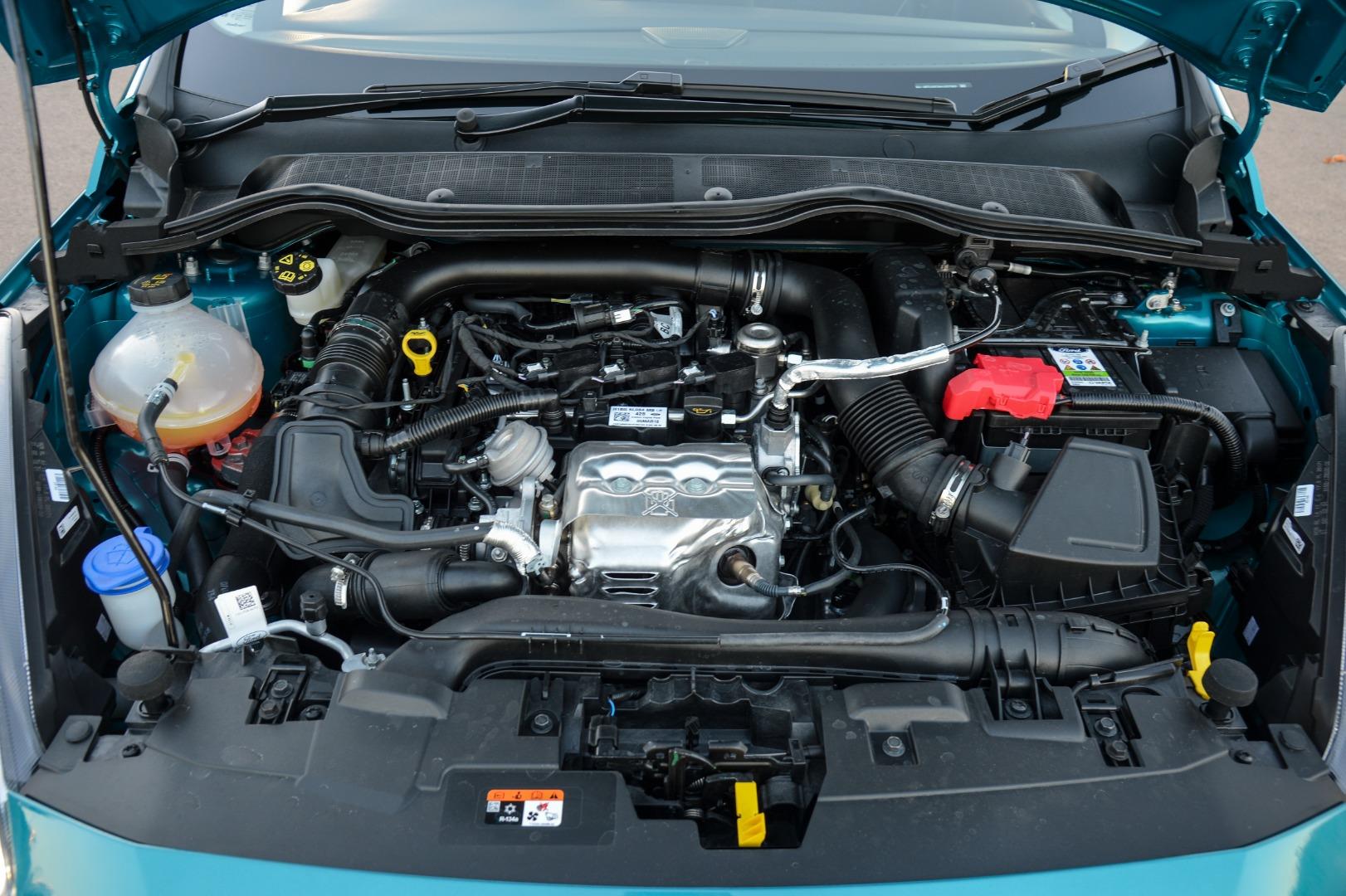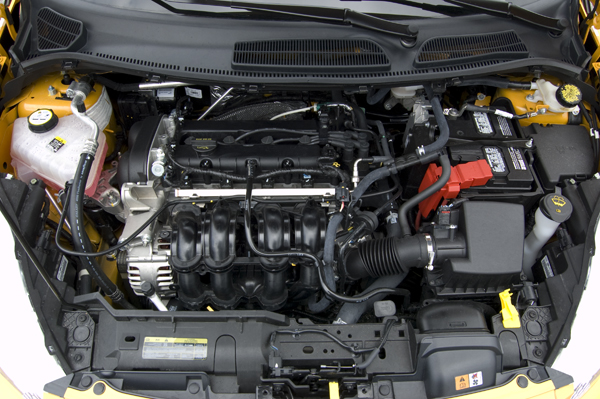Unlocking the Power of Engines: A Comprehensive Overview to Performance and Performance
Comprehending the intricate mechanics of engines is critical for both efficiency enthusiasts and daily vehicle drivers. The answers may redefine our approach to engine performance and effectiveness in methods that are both informing and necessary.
Comprehending Engine Essentials
What comprises the essential mechanics of an engine? At its core, an engine is a machine created to transform gas right into mechanical energy with a series of controlled explosions or combustion procedures.
The crankshaft after that transforms this linear activity right into rotational power, which inevitably powers the car. The camshaft manages the opening and closing of the valves, regulating the consumption of air and gas and the expulsion of exhaust gases. Furthermore, the engine counts on a thoroughly adjusted fuel-air mixture, ignition system, and cooling down system to make certain ideal performance and efficiency.
Recognizing engine fundamentals additionally includes identifying the significance of engine cycles, such as the four-stroke cycle, which includes consumption, power, compression, and exhaust strokes. Each stage is important in making sure the engine functions smoothly and properly. Proficiency of these fundamental mechanics lays the foundation for checking out a lot more complicated engine characteristics and efficiency metrics, crucial for enhancing both power outcome and performance.
Key Performance Metrics
Key performance metrics are necessary for examining an engine's performance and power outcome, offering useful understandings for both consumers and producers. These metrics work as criteria for engine efficiency, permitting educated choices in manufacturing, getting, and layout.
One of the main metrics is horse power, which evaluates the engine's capability to do job over time. Torque, gauged in pound-feet, is one more vital statistics that shows the engine's rotational force, straight impacting acceleration and hauling capability. Fuel efficiency, commonly determined in miles per gallon (MPG) or litres per 100 kilometers (L/100km), analyzes how effectively the engine transforms gas right into motion, influencing environmental factors to consider and operational expenses.
In addition, thermal performance steps just how well an engine transforms fuel power into valuable work, disclosing insights into power losses largely with heat. Exhaust degrees, consisting of carbon dioxide and NOx, are also vital, mirroring the engine's ecological effect and compliance with regulative standards.

Tuning Methods for Performance
Tuning strategies play a substantial role in improving engine effectiveness by maximizing efficiency metrics recognized in earlier conversations (ford fiesta engine). Different methods exist to fine-tune an engine, each adding to enhanced gas economy and reduced emissions
One effective technique is changing the air-fuel ratio, guaranteeing the engine operates within the ideal burning routine. A leaner mix can boost gas performance, however it should be balanced to stop misfires or engine knock. Additionally, reprogramming the engine administration system can recalibrate parameters such as ignition timing, which better boosts performance while maintaining power result.
One more important strategy involves customizing the intake and exhaust systems. Updating to high-performance air filters and exhaust headers can lower back pressure, assisting in better airflow. next This enables the engine to take a breath more freely, bring about improved burning effectiveness.
Moreover, the execution of sophisticated adjusting devices, like dyno screening, provides specific data that enables targeted changes. Consistently checking these performance metrics guarantees that adjusting efforts generate the preferred efficiency end results. Jointly, these strategies not just bolster engine performance click to find out more yet also contribute to long-term sustainability in engine procedures.
Maintenance for Ideal Efficiency
Normal engine upkeep is important for achieving ideal performance and longevity. A properly maintained engine not just operates efficiently yet also lessens the threat of expensive repair work and failures. Secret elements calling for normal interest include oil, filters, belts, and spark plugs.
Transforming the engine oil at recommended periods is vital, as oil lubricates relocating parts and avoids getting too hot. Replacing oil and Discover More air filters guarantees that pollutants do not impair engine feature. Ignoring these elements can bring about decreased effectiveness and possible engine damage.
Furthermore, checking and replacing used belts and tubes is essential to stop abrupt failings. Timing belts, in particular, need to be changed according to the supplier's timetable to avoid disastrous engine damages.
Spark connects ought to also be examined and changed as needed, given that they play an essential function in ignition and fuel effectiveness.
Future Patterns in Engine Innovation
Welcoming developments in innovation, the future of engine layout is poised to reinvent performance and performance throughout numerous applications. One of one of the most significant trends is the change toward electrification. Crossbreed and completely electrical powertrains are becoming significantly traditional, offering decreased exhausts and improved gas effectiveness. This change is not just a fad but a requirement driven by regulative pressures and customer demand for sustainable options.
Furthermore, advancements in products science are causing lighter, stronger elements that boost engine performance while decreasing power consumption. Advanced manufacturing strategies, such as 3D printing, allow for the development of complicated geometries that enhance air movement and thermal monitoring, therefore maximizing combustion procedures.
Furthermore, the assimilation of artificial intelligence and device learning is readied to transform engine diagnostics and performance adjusting. These modern technologies can analyze huge amounts of information in genuine time, enabling predictive upkeep and tailored performance improvements.
Final Thought
In verdict, unlocking the power of engines calls for a thorough understanding of their technicians and efficiency metrics. Carrying out reliable adjusting methods and sticking to routine maintenance practices considerably boost engine abilities.
Furthermore, the engine relies on a thoroughly adjusted fuel-air mix, ignition system, and cooling down system to ensure optimal efficiency and performance.
Understanding engine fundamentals additionally involves identifying the relevance of engine cycles, such as the four-stroke cycle, which includes consumption, power, exhaust, and compression strokes. Mastery of these essential auto mechanics lays the groundwork for exploring a lot more complex engine dynamics and performance metrics, crucial for optimizing both power output and effectiveness.

Embracing developments in technology, the future of engine design is positioned to transform efficiency and performance throughout various applications.